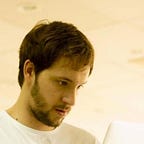Is Paris the new hotbed for artificial intelligence research?
It is quite established by now that the French tech ecosystem has been catching up thanks to a fair wind blowing its way. Despite that, the untapped potential in the scientific community is still huge, as France has been one of the leading countries when it comes to math, physics and robotics research. Recent developments have illustrated that Paris could become the very heart of artificial intelligence research.
All eyes turned on the French capital early June this year when, Facebook announced the opening of their third AI research center in Paris. This team will report to Yann LeCun, who is running the Facebook AI Research (FAIR) program for over a year now. The team was composed of 6 researchers, already discretely working since March, and is planned to ramp up to 15 staff by the end of the year. Their work will be no different than the existing teams in Menlo Park and New York, the two previously existing hubs, as they will tackle “ambitious long-term research projects in image recognition, natural language processing, speech recognition, and the kinds of physical and logical infrastructure required to run these AI systems” explains Yann LeCun in his introduction blog post.
So why is Facebook opening yet a new office there? And more importantly, why Paris and not a more mature European hub as London?
According to Mike Schroepfer, Facebook CTO, the French capital has “the highest concentration of talented people all across Europe” and he follows on explaining “the possibility to collaborate with a very dynamic research community”. One of their very first partnerships they announced was with the public French Institute for Research in Computer Science and Automation (INRIA).
One could also think that despite living and working in the US for decades now, the nationality of the FAIR director, Yann LeCun, could have influenced the decision. While defending that this decision was purely rational, LeCun unveils another element from the decision: two of their main competitors, Google and Microsoft, had already established their research teams in London, and therefore already attracted the greatest scientific talents out there. As far as the private sector was concerned, Paris was still very much untapped.
From a more general point of view, the ecosystem is astonishing. You will find scientific research labs such as Spirops which is specialised in Artificial Intelligence, meet ups group which hundreds of engineers (Paris Machine Learning Applications Group has over 2700 members) and even very promising startups such as Snips or Deepomatic.
Many of the key figures behind deep learning are European, including not only LeCun, Geoff Hinton (now at Google), and Demis Hassabis (founder of DeepMind which was acquired by Google), but also University of Montreal professor Yoshua Bengio (though he was educated in Canada). “All of them are now employed by North American organizations,” Chris Nicholson, founder of the San Francisco-based AI startup Skymind, says. “There are a lot of investment gaps in European venture capital, which means that Europe has a lot of ideas and people that either come to America or never make an impact on the mainstream.”
